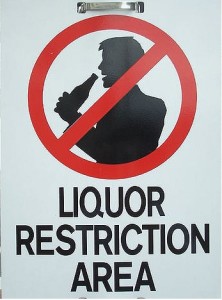In the past few years, management of businesses worldwide has undergone drastic changes because of the data revolution. As per the report by Forbes, 71% of the enterprises globally predict their investments in data and analytics will accelerate in the next three years and beyond.
Restaurant industry is no different, and the modern day restaurant management platforms provide valuable insights on customer habits, tastes and preferences. Let’s delve deep into the various ways data can help you speed up your restaurant business.
Replace the legacy systems
When you use traditional systems for managing restaurants, it’s a tedious task to manage enormous volumes of data. The data pertaining to be different functions such as billing, inventory management, sales and customer data management will be scattered in different places.
Unlike the legacy systems, the cloud based restaurant management platforms such as inresto POS help you manage all the above mentioned functions on the same platform. It also provides valuable insights such as the performance of your staff, the fast-moving items in your menu, kitchen turnaround time and many other aspects.
Run targeted marketing campaigns
In these times of Covid-19, diners have become more safety conscious and they hesitate to visit restaurants. As per the report by ETBrandEquity, there is a shift from dining out to cooking at home as 87 % of the survey respondents said that they will continue cooking post the pandemic. Hence, the need of the hour is to engage in aggressive marketing campaigns that help in pulling customers towards your restaurant.
The data provided by restaurant management platforms help you get valuable insights about your target audience.
Launch targeted marketing campaigns and reach out to the customers through the right communication channel. Based on the customer segment, the channel may be SMS, push or e-mail. The customer specific campaigns can be automated and scheduled in frequent time intervals. There is also the option to run multiple campaigns simultaneously, with personalised content for each target segment.
With the real-time analytics, you can understand the effectiveness of the marketing campaigns and the Return on Investment (ROI). If any of the campaigns are not working out, you can make necessary tweaks to the programs and relaunch them later.
Capture customer data
Offering free Wi-Fi at your restaurant is an easy method to capture customer information. When diners login to your Wi-Fi with their social media profiles, several details such as their name, age, gender, contact number and e-mail id can be collected and stored in the restaurant management platforms. It acts as the primary source of getting valuable insights about the customer’s likes and dislikes, change in their dining patterns and other latest trends that can be effectively utilised for boosting your sales.
A survey conducted by Mckinsey among more than 700 organisations worldwide found that spending on analytics to gain competitive intelligence on future market conditions, to target customers more successfully, and to optimize operations and supply chains generated operating-profit increases in the 6 percent range.
Establish a feedback platform
With the feedback feature offered by restaurant management platforms, you can collect responses of customers. Create a personalised feedback form and gather feedback on various parameters such as the quality of food, service and the overall dining experience. Based on the customer responses, you will get to know more about the positive aspects of your restaurant and the weak areas where you need to work on.
Even before a customer visits your restaurant, you will be able to offer them the food of their choice based on the insights provided by the POS system. The customer will also feel valued by such small gestures. Thus the analytics and insights offered by restaurant management platforms help you take better business decisions and come up with new strategies.
Parting Words
Data plays a crucial role in managing present day business enterprises. The modern day restaurant management platforms have proved to be a boon for restaurants as they make use of data and offer smart insights. For an industry reeling under huge losses caused by the pandemic, it not only helps them understand customer preferences but also take strategic decisions.


